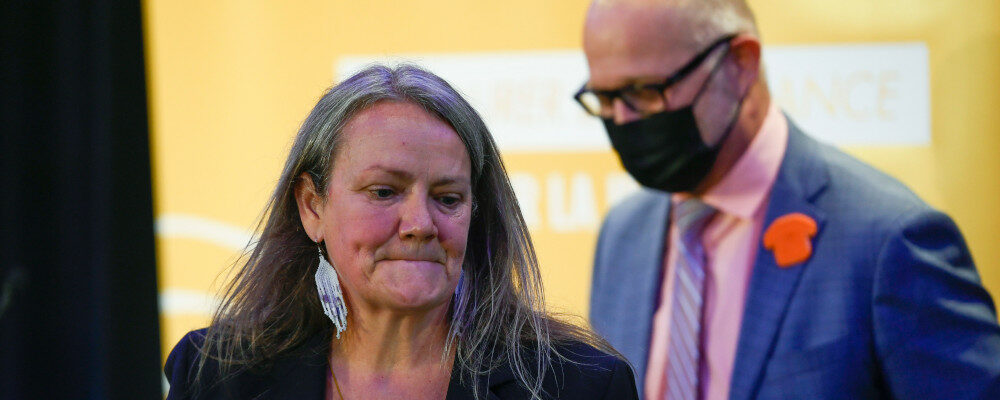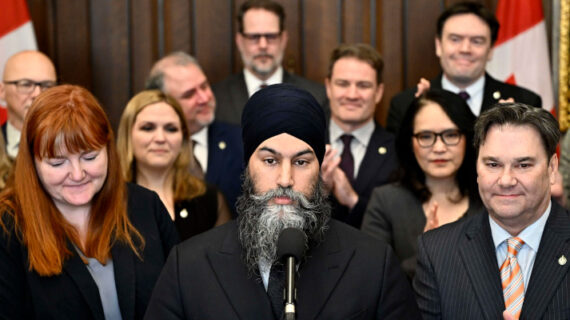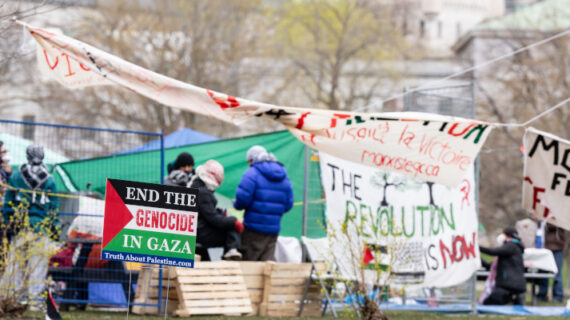Independent Special Interlocutor Kimberley Murray, in her Interim Report, “Searching for Missing Children and the Unmarked Burials,” has recommended that the government introduce new legal tools, including the adoption of civil and criminal remedies combatting “denialism.” In her report, Murray wrote that, “There are significant gaps in legal protections at the federal, provincial, and territorial levels to protect the sites pending searches and investigations” and that “[…] denialists are attacking the credibility of Survivors’ truths about missing children, unmarked burials, and cemeteries at Indian Residential Schools as sensationalist.” Murray’s proposal has been countenanced with openness by Attorney General David Lametti, so it bears consideration.
Lametti, who appointed Murray to her role, indicated at her recent presentation held at the Cowesses First Nation that he is open to all possibilities for fighting residential-school denialism. He said that includes “a legal solution and outlawing it,” adding that Canada can look to other countries that have criminalized Holocaust denial.
“Denialism” is defined by the Oxford Dictionary as “a person who does not acknowledge the truth of a concept or proposition that is supported by the majority of scientific or historical evidence”. It’s a term borrowed, as with many current lobs in the culture wars, from psychology, where it refers to a person who rejects an uncomfortable or identity-threatening truth. Denialism has emerged as a recent shibboleth for abetting increasingly illiberal restrictions on open discourse.
There is such a complete lack of rigour and clarity in what constitutes denialism that any legal project proposing to attach criminal sanctions to it would be devoid of clarity and predictability, basic stipulations of the rule of law. Would residential school denialism, for example, encompass investigative journalism such as Terry Glavin’s trenchant piece from 2022?
In his bombshell investigation for the National Post, Glavin agreed that the government’s residential school policy amounted to cultural genocide and entailed brutal psychological, physical, and sexual abuse. Glavin also found that, for all of the country’s paroxysms, a year after the announcements not a single mass grave was discovered, nor any human remains unearthed. Not a single child among the 3,201 registered on the Truth and Reconciliation Commission’s 2015 record of deaths was located. Glavin also noted the caution urged by local Indigenous leaders most involved in the sites in question.
Glavin’s piece asked questions that are rightfully, and somberly, asked in the wake of as grim an allegation as the discovery of unmarked graves of children: What remains were unearthed and how can they be connected to existing historical records? What charges ought to be laid? Who will lead these efforts? For asking these questions, Terry was made persona non grata by the legacy media. Journalist Bari Weiss, who interviewed Glavin in September 2022 for her Honestly podcast, summarized her interest in l’affaire Glavin as showing what happens to a society “ when the truth no longer matters.”
Murray’s report quotes MP Leah Gazan for the proposition that “denying genocide is a form of hate speech. That kind of speech is violent and re-traumatizes those who attended residential schools.” However, hate speech is already criminalized in Canada—although defining the line between merely repugnant speech and hate speech is a famously fraught exercise, and free speech defenders like myself would be more comfortable if the state relegated itself to its highest fetter on liberty—imprisonment—only in cases of actual or threatened physical violence, since it is particularly these grey areas that create huge chill effects against open discourse.
But Murray’s proposal seems to go beyond that, urging the adoption of new legislation which would conflate any critical discussion surrounding residential schools and unmarked graves with hate speech or pathological denialism. If the new law goes beyond what has previously been defined as hate speech, it is likely unconstitutional under s. 2(b) of the Charter, which protects even the most offensive and repugnant speech which comes short of hate speech.
Besides being unconstitutional, such a law would be thoroughly illiberal and ill-advised. It raises the spectre of driving anti-Indigenous racism underground, where it will flourish away from the disinfecting influence of open discourse.

Other discourse that Murray would seem to target, while distasteful, is best responded to with rational argument rather than criminal censure. There is a somewhat arcane small fringe of Canadian conservative intellectuals who are apologists for residential schools, and I personally find these apologists misguided and odious. In an op-ed published last year, Brian Giesbrecht decried the fact that, in the midst of a national frenzy of self-flagellation following the announcement of the detection of 215 human remains, nobody bothered to mention that enrolment in the schools was often voluntary, nor did they mention “the fact that at that time the school had an impressive outdoor swimming pool.”
This minimizes real horrors. Canada’s policy of residential schools was unmistakably evil and cruel, stripping children from their families, meaning-making traditions, and communities, and any attempt to minimize this by pointing to the upsides of assimilation or the impressiveness of swimming pools are wrong-headed. Still, it seems likely that a law aimed at criminalizing those who “don’t want to admit the schools inflicted those harms”, as one survivor quoted in Murray’s report put it, would put Giesbrecht’s blithe comment, better dealt with by opprobrium and counter-speech, within the realm of criminalization.
The practicalities of criminalizing denialism also should be contemplated. Were such a law to be passed, and someone prosecuted under it, it would effectively put residential schools on trial. In the 1980s, Holocaust denier Ernst Zundel sat trial several times for his pamphlets “Did the Holocaust Really Happen?” His trials effectively put the Holocaust on trial, with the crown bringing in Holocaust researchers and survivors to support their case, while the defence put noted Holocaust deniers on the stand and cross-examined Holocaust survivors about the accuracy of their recollection. The trials gave Zundel a platform to bolster his case that the Holocaust never really happened. It was an unsightly, disgraceful spectacle.
The solution to ignorance or prejudice in a free society can never be censorship. Attorney General Lametti is a celebrated legal scholar and was even my dean at McGill Law. He knows full well that Murray’s proposed law is constitutionally suspect and should put a halt to it.




